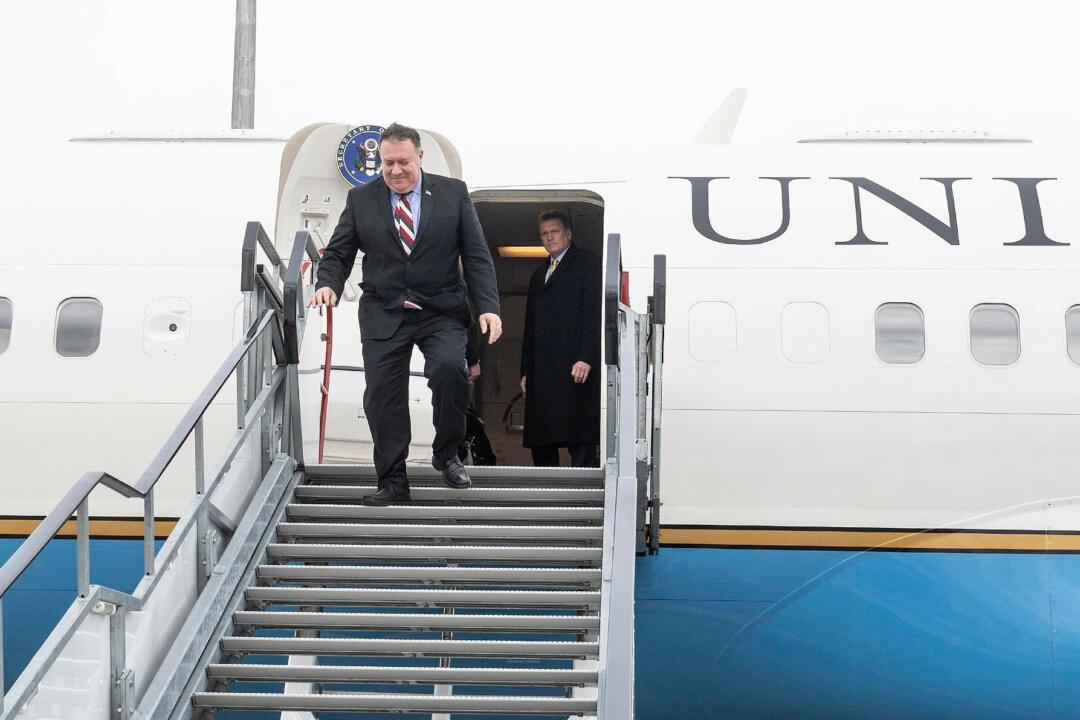BUDAPEST—U.S. Secretary of State Mike Pompeo said on Feb. 11 that America might be forced to scale back certain operations in Europe and elsewhere if countries continue to do business with the Chinese telecommunications company Huawei.
Pompeo made the comments in Budapest on the first leg of a five-nation European tour during which he said he would raise American concerns about China and Russia’s growing influence in Central Europe. He said he also would discuss concerns about the rule of law, democracy and human rights in the region, particularly in Hungary, where nationalist Prime Minister Viktor Orban has been criticized for increasingly authoritarian rule.





